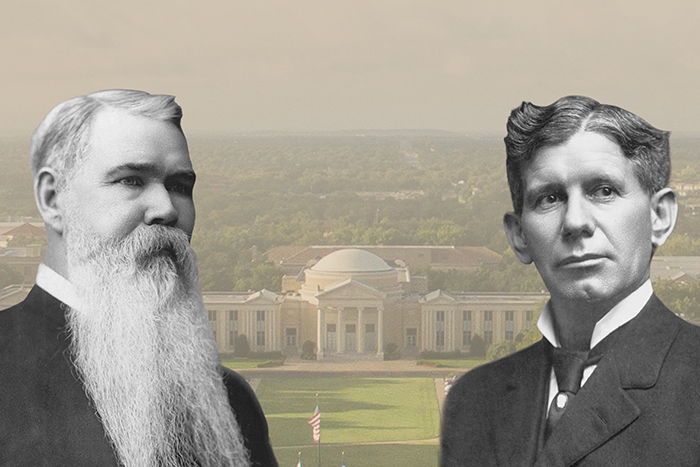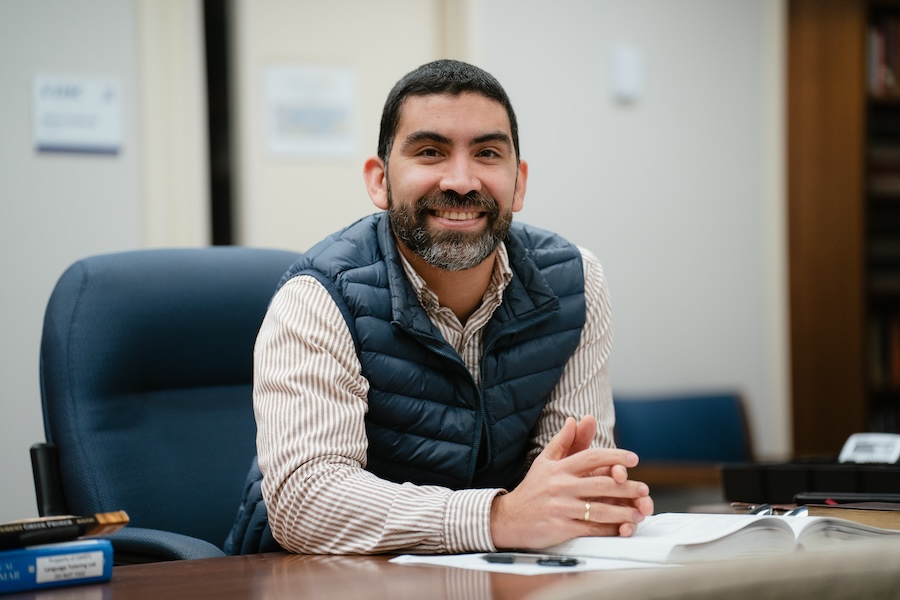A LEGACY OF SOUL-WINNING: Light supernal breaks in on repenting soul

In his seminal work With Christ After the Lost, L.R. Scarborough provides practical, theological instruction on winning lost souls.[1] Within the book, he also cites several examples of his own soul-winning efforts in order to “give inspiration, compassion, and power to all whose hearts turn to a search for lost souls and the power of God in unselfish service for Christ Jesus.”[2]
Though perhaps not typical of his experiences given their specific, illustrative use in the book, these evangelism stories nevertheless inform and encourage, not only because they reveal instances of God’s saving grace, but also because they affirm the soul-winning legacy of Southwestern Seminary that began with its founders. Given that Scarborough was the first occupant and namesake for Southwestern’s Chair of Evangelism, the seminary’s second president, and the namesake for Scarborough College, these evangelism stories are worth reexamining, that Scarborough’s legacy may continue to give “inspiration, compassion, and power” to all who would follow in his footsteps with Christ after the lost.
Below is one of these evangelism stories, taken from chapter 29 of With Christ After the Lost, titled “How to Win the Moralist.”[3]
——
A “charming young woman, reared in a Christian home,” sat among the congregation as Scarborough preached on repentance as the first step every sinner must take toward a relationship with God. He declared that no one could “evade it, avoid it, or escape it, nor could there be made any substitute for repentance: not morality or baptism or money or service—nothing.”
Alluding to Paul’s words in Acts 17:30, Scarborough concluded: “God commandeth all men everywhere to repent.”
The young woman became angry at his words and refused to accept them. Scarborough recalls that as he approached her following the sermon, she was “enraged” by the message.
“I am no sinner,” she said. “I do not have to repent.”
“I have been raised in the lap of a godly home,” she told him, “knowing nothing but church and Sunday School.” She repeated, “I do not have to repent.”
Scarborough “looked deep into her soul” and said, “Have you ever yielded yourself in faith to Jesus Christ and trusted Him and Him alone for salvation?”
She replied promptly and confidently: “No, sir, I have not.”
Scarborough told her, “Then you are a sinner deserving God’s wrath and sin’s eternal punishment.”
He then recited two Scriptures for her:
“He who believes in the Son has eternal life; but he who does not obey the Son will not see life, but the wrath of God abides on him” (John 3:36).
“And He, when He comes, will convict the world concerning sin and righteousness and judgment; concerning sin, because they do not believe in Me…” (John 16:8-9).
“The Spirit of God took the message and barbed the arrow,” Scarborough says. Convicted by this Scriptural confrontation, the woman began to weep. Scarborough led her to the front of the sanctuary, and she sat with her face in her hands.
Scarborough said to her, “Trust Christ now.” She responded, “I am too great a sinner. I am the meanest woman in this city.”
Upon such an admission, immediately, “the light supernal broke in on her repenting soul,” Scarborough says. Recalling the words of Revelation 3:20, Scarborough says that at that moment, “the Savior entered the open door of her heart by faith and supped with her in a joyful season of grace.”
In With Christ After the Lost, Scarborough used this story to illustrate the need to “press on” those who do not see their need for repentance the truth of Scripture and the need for spiritual rebirth. But within his recounting, one can also easily discern his tender compassion for lost souls, his zealous yet gracious heart in evangelism, and his love for the Lord Jesus Christ. May we be encouraged by his example, and may we carry on his legacy of searching for lost souls.



